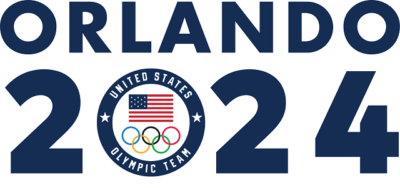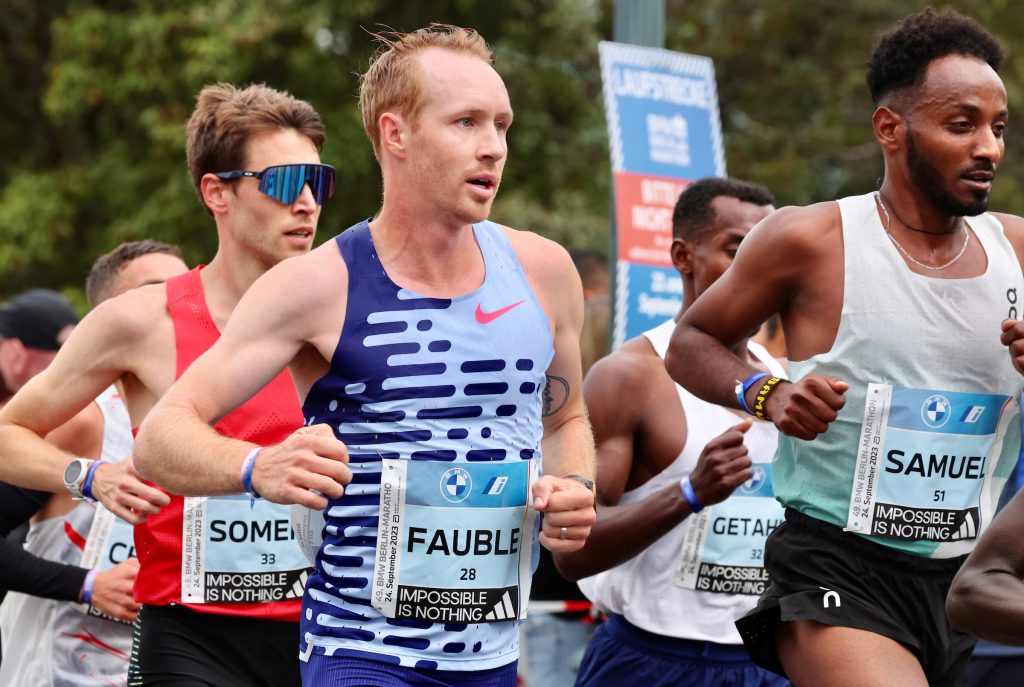USATF Just Updated Its 2024 Olympic Selection Policy. Here’s What It Means
The top three finishers in Orlando will go to the Olympics, assuming the US unlocks a third spot by May 5
By Jonathan GaultUSATF has published a revised selection policy for its 2024 Olympic marathon team ahead of the US Olympic Marathon Trials, which will be held in Orlando on February 3. The main takeaway is that USATF will do its best to ensure the top three finishers at the Trials will go on to represent the US at the Olympics in Paris in August.
It has taken far longer than anticipated to reach this point. The Olympic Trials are just three weeks away — ideally, you’d want the selection policy to be finalized well before that. USATF initially announced the selection policy on December 1, but some of the language in that document was vague and confusing, which led to USATF removing the selection document from its website to make revisions. It also does not help that as of now, the US men have only “unlocked” two Olympic spots — creating a cascade of scenarios USATF was hoping it would be able to avoid at the Trials. The new document — posted with the revisions in red — is now posted online.
The whole situation is still a bit complicated, but we’ve read over the document and reached out to USATF to understand some of the more complex scenarios. Here is what you need to know about the selection policy.
The top three women at the Trials who have run 2:29:30 or faster will go to the Olympics
The US women have already “unlocked” the maximum of three Olympic spots. That means the top three finishers in Orlando will qualify for the Olympics as long as they have run 2:29:30 or faster during the qualification window (November 1, 2022 – February 3, 2024).
The top three men at the Trials who have run 2:11:30 or faster will very likely go to the Olympics
The US men have only “unlocked” two of the three possible Olympic spots. That means the top two finishers in Orlando who have run 2:11:30 or faster during the qualification window (November 1, 2022 – February 3, 2024) will be on the team. The third finisher who has run 2:11:30 or faster during the window will likely be on the team but may have to wait until May 5 to have their place confirmed. It’s also worth noting that the window includes the Trials themselves — if you run 2:11:30 or faster in Orlando, that counts.
The waiting period arises because the first 64 spots in the 80-person Olympic field will be awarded based on the January 30 Road to Paris list, and right now the US only has two men in the top 64. The final 16 spots will be awarded based on the May 5 Road to Paris list. The third American on the list, Scott Fauble, is currently ranked #68, and there’s a good chance he will still be ranked highly enough to unlock the third spot on May 5. But if a bunch of athletes from countries who do not already have three qualifiers move ahead of Fauble (or whoever ends up as the third-ranked American) between now and then, the US may not get a third spot.
Could the US men unlock a third spot between now and the Olympic Trials?
Yes. Galen Rupp is not currently on the Road to Paris list since he has only run one marathon within the Olympic qualification window (2:08:48 for 8th at 2023 Chicago). But Rupp is running the Houston Half Marathon on Sunday, and half marathon performances can be used to earn a world ranking. If Rupp runs 60:01 in Houston on Sunday, he would move into #64 on the Road to Paris list. If he does that and no one from another country passes Rupp by January 30, he would unlock the third Olympic spot for the US.
Rupp may not even have to run as fast as 60:01. Because Houston is a Category B race, it awards bonus ranking points for finishing in the top 6. So if Rupp finished 3rd in 60:08, he’d earn the same number of points as if he finished 7th in 60:01.
The other thing worth noting is the athlete currently ranked 64th on the Road to Paris list, Rwanda’s John Hakizimana, is serving a doping suspension until October 2025. Since World Athletics almost certainly will not offer him a spot at the Olympics, being #65 in the rankings on January 30 should be enough to earn qualification. To do that, Rupp would only have to run 60:47 in Houston — again, assuming no one else passes him before January 30.
Rupp’s personal best in the half marathon is 59:47 from 2018.
What if someone finishes in the top three at the Trials but hasn’t broken 2:11:30/2:29:30?
As much as possible, USATF wants to be able to name its Olympic team at the conclusion of the Trials on February 3. USATF also wants whoever is representing the US to be at their best at the Olympics in Paris, so if someone finishes in the top three at the Trials but has not run 2:11:30 or 2:29:30, USATF will not allow that athlete to “chase” the standard by running another marathon between the Trials and the Olympics in August.
But USATF director of long distance running programs Amy Begley confirmed to LetsRun that USATF is allowing athletes to improve their ranking by running a spring half marathon (or 25k or 30k). What would that look like in practice? Well, let’s consider someone like Paul Chelimo, who qualified for the Trials via a half marathon time but has never run a full marathon (Chelimo has neither confirmed nor denied if he’s running the Trials). Let’s say it’s hot in Orlando and Chelimo wins the Trials in 2:11:31. He wouldn’t be eligible for the team on February 3 since he has not run the 2:11:30 quota replacement standard. But if Chelimo ran a fast spring half marathon, he could boost his ranking enough to make himself eligible by May 5.
In this scenario, winning the Trials in 2:11:31 would give Chelimo 1180 ranking points. Chelimo already has a 62:22 half marathon within the qualification window, which gives him another 1093 points. An athlete’s ranking is an average of their two best performances, so for Chelimo, that would be (1180+1093)/2 = 1136 points. Currently, 80th place on the Road to Paris list has 1129 points. But if Chelimo wanted to try to run a faster half this spring to improve his ranking, USATF would allow him to do that. And if he is top 3 at the Trials and eligible to be picked based on being int the top 80 of the Road to Paris list on May 5, Begley said USATF would select him to the Olympic team.
What about Scott Fauble?
Fauble is one of the top men’s contenders for the Olympic team. He ran 2:09:44 in Boston in 2023, but because Boston is a downhill course, that time does not count as sub-2:11:30 for Olympic qualification purposes. So what happens if Fauble wins the Trials in 2:11:31? As in the Chelimo scenario above, Fauble could not be named to the team immediately because he would not be eligible on February 3.
But Begley confirmed to LetsRun that if Fauble finishes in the top three in Orlando and is eligible to be picked based on the May 5 Road to Paris list, USATF would name him to the Olympic team. And if Fauble is in the top three in Orlando, there’s a very good chance he would be ranked highly enough on May 5 as it would require 13 athletes from countries who don’t already have three qualifiers to pass him in the rankings between now and May 5.
Talk about the Trials on our world-famous fan forum / messageboard: At last it’s been confirmed, USATF will honor the order of finish at the US Olympic Marathon Trails and Scott Fauble can go.





